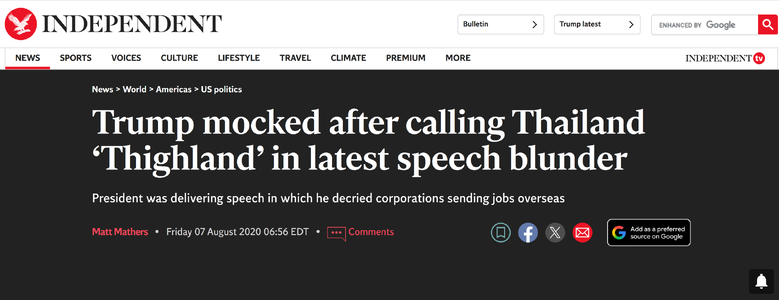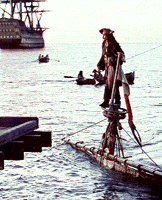“… Where Monroe sought to keep European powers out of the region, Trump has turned the doctrine inward—treating the hemisphere as an extension of the U.S. homeland, where Washington will act unilaterally to root out perceived enemies. Loyalty is rewarded, and defiance can carry a price. The White House has moved quickly to punish dissenting leaders, yanking visas and imposing sanctions from Bogotá to Brasília. It has combined a show of force in the Caribbean with a campaign to squeeze Venezuelan leader Nicolás Maduro, hoping to drive him from power.
“We’re restoring a needed focus on defeating threats in the Western Hemisphere,” Trump told hundreds of generals and admirals assembled at Quantico last month.
… This isn’t new for Trump. In his first term, his top aides invoked the Monroe Doctrine to justify a tougher stance toward Venezuela, Cuba and Nicaragua, and to warn China and Russia to stay out of the hemisphere. But this time, “Monroe 2.0” has become a popular rallying cry across the conservative ecosystem.
“I’m at least thrilled that we’re finally using military force in our own hemisphere against people that would have done harm against the American homeland,” popular conservative activist Charlie Kirk said on his podcast on Sept. 3, a week before he was assassinated. Kirk said the drug vessels in the Caribbean targeted by Trump’s lethal strikes pose a bigger threat to Americans’ safety than Russians soldiers. …”
“… U.S. security firms and contractors from
Palantir to Blackwater founder Erik Prince have
followed the administration’s lead, invoking hemispheric security while pitching deals from Ecuador to Haiti that align with Trump’s new war on terror. Prince, who has been working with Haiti to target gangs with drones, lamented the “erasure of the Monroe Doctrine” in a podcast earlier this year, arguing “what happens in the Western Hemisphere is America’s business.”
Trump has rewarded right-wing leaders in the region whose agendas mirror his own. He enlisted El Salvador’s Nayib Bukele to accept more than 250 U.S. deportees in the country’s notorious maximum-security prison in exchange for $6 million. Trump later received Bukele, who has been accused of human-rights abuses in his crackdown on the country’s gangs, at the White House, praising him as an example for other nations in the hemisphere.
…
Critical analysts and former officials say that explicitly conditioning U.S. aid on ideological alignment risks undermining U.S. credibility as a partner in the region. “If we invoke the Monroe Doctrine, that is the biggest narrative gift that we can give to China,” says Leland Lazarus, a former special assistant to the head of U.S. Southern Command and an expert on Chinese-Latin American relations. “When Latin American and Caribbean partners hear that, they think that’s the return of imperialism, of U.S. military intervention. It might actually push countries further into China’s hands.”
Critics warn that Trump’s punitive approach is shortsighted in a region with growing economic dependence on Beijing and where resistance runs deep to American policies that recall the long history of U.S. intervention.
“2025 is not 1823,” says Jorge Heine, a veteran Chilean ambassador. “This policy is all sticks and no carrots, and focused on U.S. domestic politics, while China is the number one trading partner of South America.”
… Trump has stated his “Donroe Doctrine” more bluntly. Addressing Maduro’s attempts to placate him, the President warned: “He doesn’t want to f— around with the United States.” As U.S. warships amass off the coast of Venezuela, few in the region doubt he means it. “




